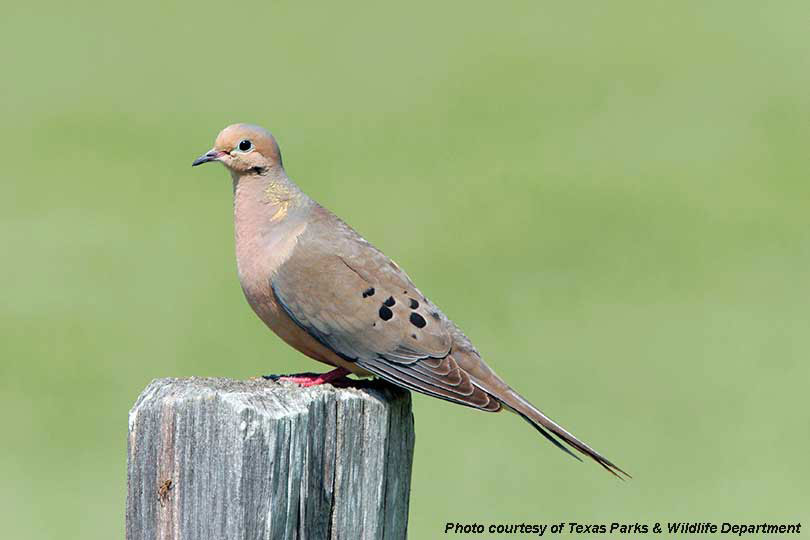By Justin Walker
Communications Specialist
Dove season is underway, and while conditions were good for opening weekend, success will be dependent on food and water access, according to a Texas A&M AgriLife Extension Service expert.
Drought conditions in the state will concentrate dove populations near food and water sources, AgriLife Extension Wildlife Specialist John Tomecek, Ph.D., said. Hunters in areas with access to those resources will have an advantage this year.
“Birds can spread out when there is plenty of water and food sources everywhere, but dry, hot weather over the last few months will limit where they will be found,” Tomecek said. “Having water sources like ponds or troughs to hunt over, especially in western parts of the state, should improve success.”
Dove are attracted to food sources such as sesame, sunflowers and sorghum. While providing these crops for dove can improve hunter success, there are state laws to be followed, Tomecek said.
Hunters can access publications on legal supplemental feeding for dove, such as “Normal Agricultural Operations and Dove Hunting: How to Legally Provide Food Sources and Improve Hunting Opportunities,” through the Texas A&M AgriLife Extension Bookstore.
It is illegal to broadcast seed or grains before or during dove season just to attract birds, Tomecek said. However, broadcasting in the act of planting winter forages is allowed, if standard practices of seed drilling or broadcasting are followed by light disking or dragging.
“The best way to explain it is that if you put seed or grain on the ground this time of year from a sack, it’s likely illegal,” he said. “If you planted it and it is maturing during hunting season, you can manipulate it in any way to hunt over it throughout the season.”
Click here for more information on dove hunting and food sources.

